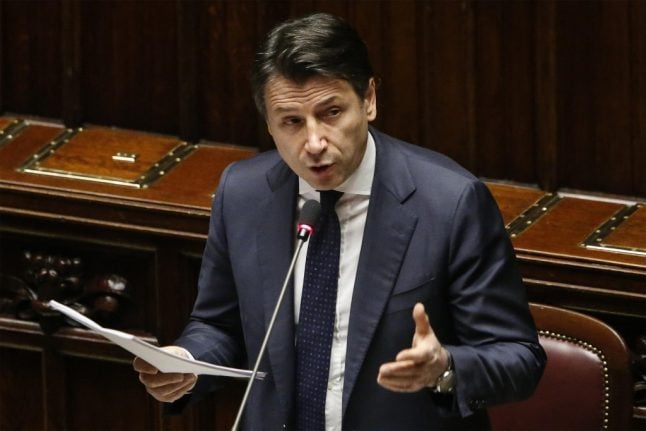“We cannot allow the efforts made to be in vain because of rashness at this delicate stage. Moving from the policy of 'let's close everything' to 'let's reopen everything', would risk irreversibly compromising these efforts,” Conte told parliament.
Calabria in the south allowed bars and restaurants with outside tables to open to the public on Thursday.
MAPS: Which parts of Italy have the fewest coronavirus cases?
And the northern Veneto region, which was among the first to be hit by the virus but has suffered far fewer deaths than neighbouring Lombardy, lifted a range of restrictions including on takeaways, pizzerias and some shops on Monday.
Regions south of Rome have suffered relatively few deaths from Covid-19.
“Initiatives involving less restrictive measures are contrary to national rules, and are therefore to all intents and purposes illegitimate,” Conte said.
On Sunday night, he announced a gradual loosening of some measures under nationwide rules beginning on May 4th.
While some businesses have been allowed to reopen, the national rules remain strict.
But regional governments across Italy have the power to set their own rules.
While local officials have previously set stricter rules that those enforced by the government, many now seem keen to reopen faster than advised.
Evidence of a rise in infections could lead to restrictive measures being reintroduced.
Conte said officials would carry out some 150,000 tests in May to see how many people were developing antibodies to fight the virus. An app to trace contacts between potentially infected people would be voluntary, he said.
The virus reproduction number (R0) in Italy was currently between 0.5 and 0.7 – meaning 10 virus sufferers infect between five and seven other people.
Should it rise again to 1.0, intensive care units would once again be overwhelmed, he said.
Conte's speech to the lower house was delayed after opposition members complained that the prime minister was not wearing a mask.
The far-right League party accused Conte of extending the lockdown because it was the easy option, saying it had stripped Italians of their fundamental freedoms.
Conte said these accusations were “profoundly unjust”, adding that the saving of lives was a “primary good” that trumped other rights.
The lockdown may be unpopular, but it was not an electoral programme designed to please anyone, he said.
However, polls have found that the majority of Italians support the lockdown measures.
MAPS: Which parts of Italy have the fewest coronavirus cases?



 Please whitelist us to continue reading.
Please whitelist us to continue reading.
Member comments